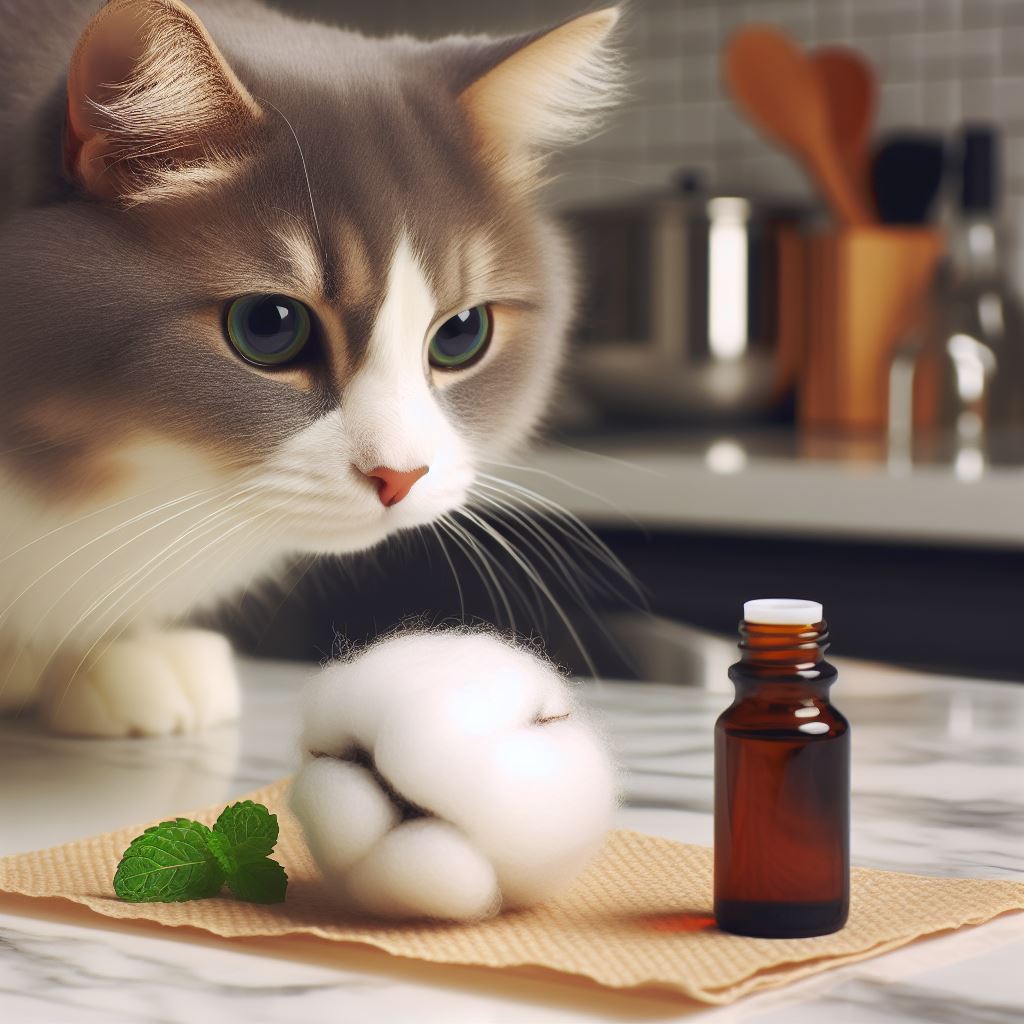Cats may be cute and cuddly, but they can also wreak havoc in your home and garden. From knocking over houseplants to using your vegetable garden as a litter box, our feline friends don’t always behave the way we want. While training and discipline can help curb bad behavior, sometimes deterring cats calls for other creative solutions.
One effective method is using scents and smells that cats hate to keep them away from certain areas. Cats have a very sensitive sense of smell, so they will avoid places and objects that have odors they find unpleasant or overpowering. Understanding what scents deter cats can help you protect your belongings and garden without having to resort to cruel or dangerous repellents.
This guide covers the top smells that will send felines running in the other direction. We will also provide tips on the best ways to use cat-repelling scents throughout your home and yard. With a bit of strategic use of these pungent aromas, you can have an effective cat deterrent that keeps both you and kitty happy.
Why Smells Are an Effective Cat Deterrent
Before diving into the specific smells, it’s helpful to understand why scents are such an effective feline repellent in the first place. Here are some key reasons smells and aromas work to deter cats:
Cats Have an Ultra-Sensitive Sense of Smell
A cat’s sense of smell is extremely sensitive, more than 10 times better than that of humans. They have around 200 million scent receptors compared to only 5 million in people. This makes them adept at detecting even the faintest odor traces in their environment. Strong, pungent scents quickly overwhelm cats’ sensitive noses causing them discomfort and irritation.
Certain Smells Are Unpleasant or Overpowering
While cats enjoy some aromas, they find others unpleasant or overpowering. Smells like citrus, mint, eucalyptus, and perfumes contain volatile compounds that are potent and pungent to cats. When they encounter these scents, cats instinctively avoid the area to get away from the overwhelming odor.
Smells Act as Territorial Markers
In nature, cats use urine and other scents to mark their territory and send messages to other cats. When you use smells a cat dislikes to mark an area, it signals to them that it’s not their territory and deters them from entering or using the space.
7 Smells Cats Hate

Now that you know why aromas are effective for cat deterrents, let’s look at some of the top smells cats can’t stand. Using these scents strategically around your home and garden can help keep kitties away from off-limit areas.
1. Citrus
Citrus fruits like lemons, oranges, and limes contain oils and acids that are highly distasteful to cats. The strong citric acid smell overstimulates their sensitive noses making citrus a very effective feline repellent. There are a few ways to use citrus smells:
- Rub peels of citrus fruits directly on surfaces cats are scratching or sitting on.
- Place sliced fruits or peels in problem areas. The strong scent will deter cats.
- Use citrus essential oils like lemon, orange, or grapefruit and dilute in water. Spray over plants, yard edges, furniture and carpet edges.
2. Peppermint
The minty aroma of peppermint is another smell cats strongly dislike. The menthol naturally found in peppermint is irritating to a cat’s sensitive nose. Some ways to use peppermint are:
- Crush fresh peppermint leaves and rub directly on furniture, garden soils and plants.
- Use peppermint essential oils diluted in water in a spray bottle. Mist problem areas like couches, curtains, counters, garden beds.
- Place cotton balls soaked with diluted peppermint oils around the house and yard.
3. Vinegar
The tangy scent of vinegar is unappealing to cats. A 50/50 mixture of white vinegar and water used as a spray can help deter cats from scratching furniture or carpeting or entering garden beds. The vinegar smell dissipates outdoors after a few hours but still serves as an effective short-term repellent.
4. Eucalyptus
Another potent aroma cats dislike is the scent of eucalyptus from the eucalyptus plant. The plant contains Eucalyptol that has a piercing eucalyptus fragrance that cats find overbearing.
- Use eucalyptus leaves and rub directly on surfaces.
- Dilute eucalyptus essential oil in water and spray.
- Plant eucalyptus bushes around your garden borders.
5. Lavender
Though enjoyed by many humans, the floral scent of lavender has a strong deterrent effect on cats. Lavender essential oil used diluted in a spray bottle can keep cats away from furniture, scratches posts, and more.
6. Rue
Rue is a herb plant that has a bitter, pungent smell that naturally repels cats. Planting rue bushes around the edges of gardens can help deter cats from entering those areas and doing their business there.
7. Coleus Canina
One of the most effective smells for warding off cats is Coleus Canina, also known as Scaredy-Cat Plant. It contains a natural odor that is extremely repellent to cats but undetectable to humans. Planted around gardens, patios and yard edges it creates an invisible scent barrier that keeps cats out of the area. It’s available at many garden supply stores.
Tip: Essential oils need to be diluted before use. Never apply undiluted oils directly to surfaces.
Now that you know which scents cats hate, let’s look at some simple ways to use them for effective, humane cat deterrents around your home and garden.
How to Use Scents Cats Hate to Keep Them Away

Using aromas that repel cats takes just a few simple steps. With strategic use of these smelly deterrents, you can effectively protect your home, yard, and garden. Here are some tips for using cat-hating smells as natural feline repellents:
Around Your Home
There are a couple of main ways to use scents inside to keep cats away from certain areas:
Use citrus peels or essential oils – Rub citrus peels directly on surfaces like couches, curtains, counters, and doors. Or dilute lemon/orange essential oils and spray. Reapply daily.
Try vinegar or lavender spray – A vinegar water solution works for deterrent sprays. Or use lavender essential oil diluted in water. Mist on surfaces like carpets, drapes, and furniture that you want to be off-limits.
Place dry aromatics – Set out small dishes filled with fresh-cut citrus slices, crushed mint leaves, and eucalyptus leaves. Keep refilled and replenished daily.
Use repellent plants – Have houseplants like rue, lavender, or eucalyptus in problem rooms. Their natural scents will help deter cats.
Around Your Garden & Yard
There are also easy ways to use scents throughout your outdoor spaces:
- Spray vinegar water mix – Mist walkways, patios, and garden edges that you want cats to avoid. Reapply after rain.
- Plant coleus canina – Border gardens and yards with this natural cat-deterrent plant. Creates scent barriers to keep cats out.
- Use citrus peels – Rub citrus fruit peels on any outdoor surfaces cats are scratching or sitting on that you want to protect.
- Place dry botanicals – Set out small dishes of eucalyptus leaves, citrus peels, and peppermint leaves around gardens and patios.
- Use essential oil sprays – Dilute oils like citrus, peppermint, eucalyptus, or lavender and spray patios, fences, and garden edges.
Pro Tip: Use coyote or predator urine (available at garden stores) around yard edges. This taps into cats’ instincts to avoid the scent of potential predators.
Using multiple deterrents together boosts their effectiveness. For example, spray vinegar water then add citrus peels and eucalyptus leaves. Rotate scents frequently so cats don’t acclimate. Consistency is also key – reapply aromatics daily.
Other Tips for Using Scents to Repel Cats
Here are some additional pointers for getting the most potency from cat-repelling smells:
- Crush fresh herbs and citrus peels before use to release stronger aromas.
- Warmer temperatures help scents travel farther and remain potent longer. Use deterrents liberally during the summer months.
- Apply smells densely around entryways like garden gates, pet doors, and windows to block access.
- Target scents on horizontal surfaces cats walk on to irritate paws and deter access.
- Use smells throughout a space to surround completely with an unpleasant aroma. Don’t just spot-treat small areas.
- For plants, sprinkle aromatics like citrus peels or crushed peppermint around the base. Also, dust leaves.
- Combine visual deterrents like garden netting or double-sided tape with scents for added effectiveness.
Benefits of Using Scents Over Other Cat Deterrents
Deterring cats with smells offers some advantages over other methods like electronic repellents. Benefits of scent repellents include:
Humane and gentle – Scents are non-toxic and don’t harm cats. They create minor discomfort that deters cats without causing stress or pain.
Safe for people and pets – Scent repellents are harmless for kids, adults and other pets when used properly. Especially when using natural botanicals.
Non-habit forming – Cats don’t get used to smells over time as long as you rotate scents frequently. The effect doesn’t wear off compared to other repellents.
Easy application – Scents are simple to apply. Just crush, sprinkle, spray or rub on. Takes just a few minutes daily.
Cost effective – Using items like citrus fruits and herbs costs very little compared to electronic and chemical cat repellents.
Multiple options – There are many different scent options so you can test different smells and find what works best for your situation.
Bottom Line
Unwanted cats roaming your yard and home can be frustrating, but there are humane ways to deter them without harming animals or using dangerous chemicals. Harnessing scents that cats naturally dislike offers an easy, affordable way to repel felines without negative consequences.
Strategically using aromas like citrus, mint, herbs and essential oils throughout your indoor and outdoor spaces establishes scent boundaries that prompt cats to avoid and move along. With consistency and persistence, you can effectively train neighborhood cats to steer clear of your property and cease disturbing your garden and home.
So give the smells cats hate a try and rest easy knowing you can coexist harmoniously with neighborhood cats while still safeguarding your home and yard. And be sure to apply your new anti-cat aroma knowledge gently and humanely!
In summary, natural scents that cats dislike such as citrus, mint, vinegar and essential oils can create effective barriers to keep cats from entering gardens, patios and rooms in a gentle, humane way. Strategic use of these smells throughout your home and yard paired with consistency deters cats from unwanted behaviors like scratching furniture, soiling gardens without harming animals.




